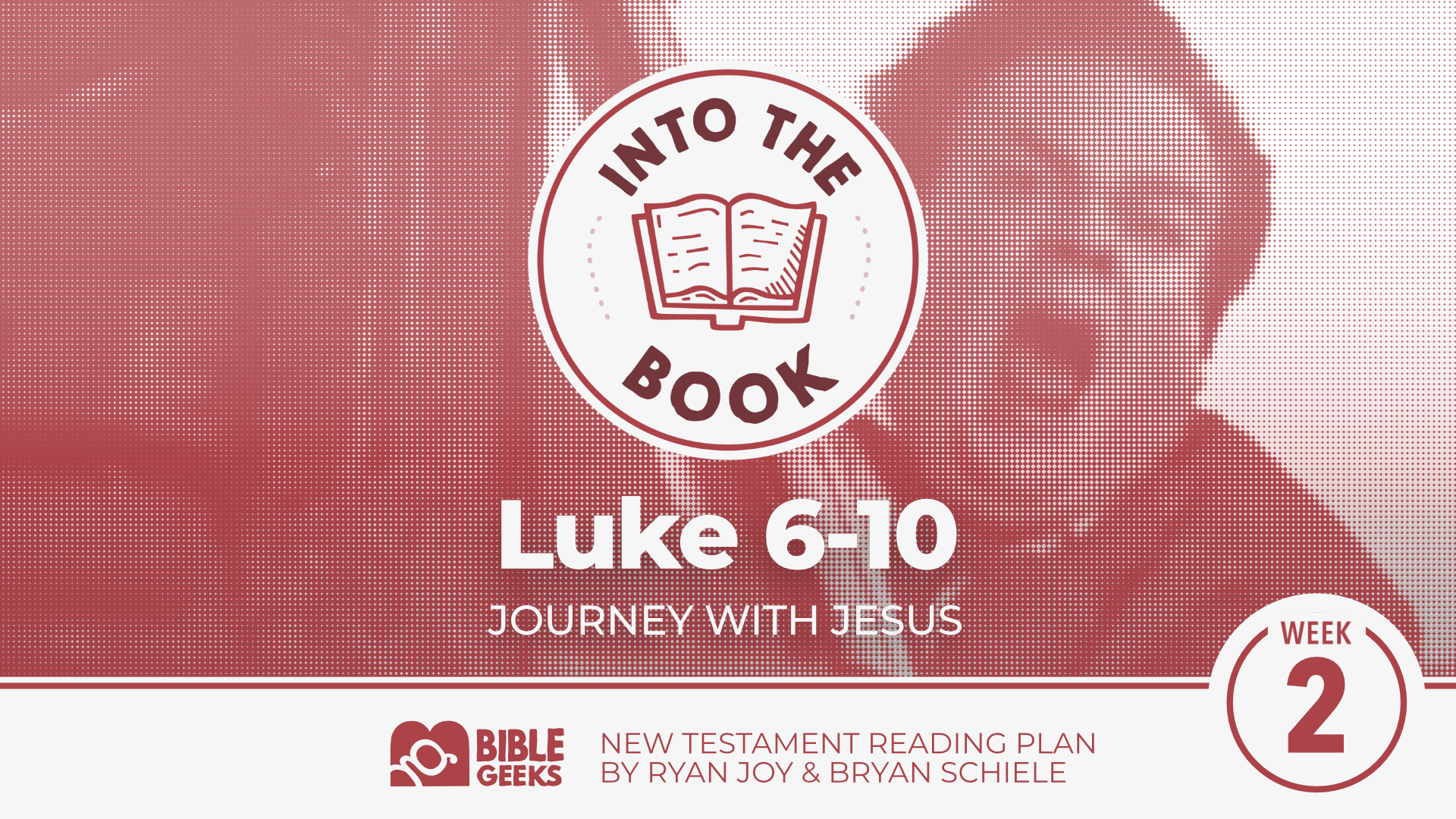
Luke 6-10; Gen. 16-30; Psalm 4-6
FROM THE NEW TESTAMENT
Luke 6-10
Journey With Jesus
Last week we started journeying through the New Testament, beginning with Luke. As Luke leads us through the mountains and seaside villages of Galilee, these Spirit-led words can bring us to someplace new — insights and fresh resolve to follow this unusual King. So let’s get ready to set off on the next leg of our trip through Luke.
Put Jesus “On the Map”
Back in Luke 4:19, Jesus “returned in the power of the Spirit to Galilee.” Luke took us from Bethlehem to Nazareth to Judea in last week’s readings, but this period of teaching and miracle-working in Galilee will put him on the map, as he rises to new heights of fame - or infamy, depending on who you ask — in chapters 5 to 9. As you read, try to see this man from the perspective of the people around him.
Catch the Sights
When I’m on a road trip, it’s easy for me to get so caught up “making good time” that I forget to notice the interesting landmarks around me. Some of the most beloved moments in the Bible come in these chapters, so don’t rush past them without appreciating them. The Good Samaritan story will lead you to be more merciful. The story of Mary and Martha will remind you to slow down and listen at Jesus’ feet. The exchange with Peter will highlight the gravity of confessing Christ. And while Jesus shows you his power as he feeds five thousand, he’ll show you his compassion when he cares for the weak, the poor, and the outsiders - again and again.
Notice the “Turning” Point
Tensions build throughout these chapters as controversy increases. When we get to chapter nine, the pace of the events picks up even more, until the chapter closes around these heavy words:
“When the days drew near for him to be taken up, he set his face to go to Jerusalem” (Luke 9:51).
He won’t arrive in Jerusalem for another ten chapters. But now he starts preparing the disciples and himself. Jerusalem isn’t just a geographic destination, it’s the completion of his work, his purpose. What’s about to happen in Jerusalem? A few verses earlier Jesus said it: “Let these words sink into your ears: The Son of Man is about to be delivered into the hands of men" (Luke 9:44). The climax of history draws near.
Speaking of words sinking in …
Learn to Take Directions
Some of us (ahem) notoriously refuse to ask for directions, even in unfamiliar territory. A family member recently told me about a road trip where her driver got in a shouting match with Siri (the iPhone voice mapping their way)! But if we want to go where Jesus leads, we have to learn to listen.
At the end of the sermon on the plain he asks, “Why do you call me 'Lord, Lord,' and not do what I tell you?” (Luke 6:46). Ouch! When he starts telling parables, don’t miss the surprising purpose of these parables (Luke 8:4-18). He says to “pay attention to HOW you hear” (Luke 8:18). And when Jesus’ face shines on a mountain, what does God say from above? “This is my Son, my Chosen One; listen to him!” (Luke 9:35).
As you read Luke this week, take it as another opportunity to do just that — listen to him!

FROM THE OLD TESTAMENT
This week we’ll trace God’s covenant promises across three generations, from Abraham to Isaac to Jacob. We start on Monday with three important chapters: Hagar and Abraham’s other son, Ishmael (Gen. 16), the circumcision covenant (Gen. 17), and Abraham’s visit from “three men” (Gen. 18). As the week winds down, watch God continue working to bless the whole world through this family’s line, speaking to Isaac (Gen. 26) and Jacob (Gen. 27).
BIG TAKEAWAYS
The stories this week give us a lot to chew on. Why do three men visit Abraham but when two men go to Sodom, Abraham is left speaking with the Lord (Gen. 18-19)? How does Abraham’s test to offer his “only son” prefigure God’s sacrifice of his “only son” (Gen. 22; cf. John 3:16)? And how will God fulfill his promise to bless the world through the “offspring” of Abraham, Isaac, and Jacob (Gal. 3:8,16,29)?
Gen. 16-30
REFLECTING ON THE PSALMS
We recommend reading Psalm 4 in the evening — “ponder in your hearts on your beds ... in peace I will both lie down and sleep” (Ps. 4:4, 8) and Psalm 5 in the morning — “O Lord in the morning you hear my voice” (Ps. 5:3) — which may have been the intention in placing these two together. Both will strengthen your peace in the Lord, even in the midst of trouble and evil. Learn from David’s confidence, but also his openness before God as we end the week in a weeping Psalm 6. Even there, watch how he works from heartbreak to hope in God.


